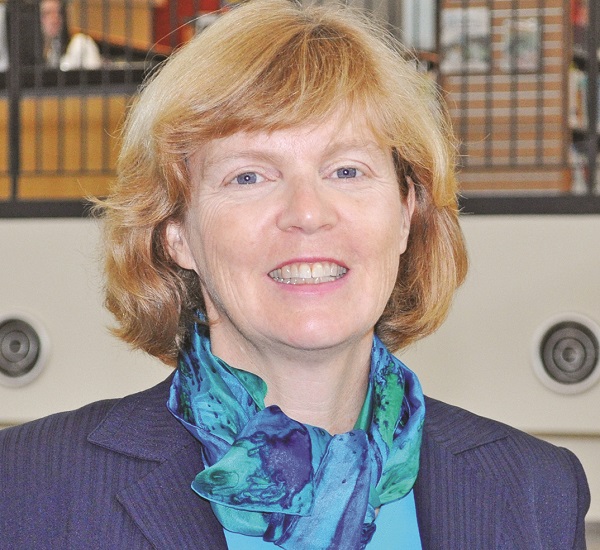Archive
It’s about “your sisters, your mothers, your daughters, your community”
February 11, 2015 · 0 Comments

By Brock Weir
As a lawyer advocating for clients within Canada’s prison system, Aurora’s Sandra Leonard has always had a keen interest in human rights.
When the Aurora Public Library asked her to lead a panel next month to coincide with International Women’s Day, however, Ms. Leonard says she was surprised, if not puzzled, as to why she was asked to moderate such a discussion, which brings together a wide range of community leaders on challenges faced by women at home and abroad.
“When I was asked, my response was, ‘Why me?’” she says. “I haven’t been particularly more involved in women’s rights than in anybody else’s rights. I see that they are all connected. With women’s rights, I tend not to compartmentalize it because I think if you’re harming one segment of society you’re harming all of it.”
Through her work, Ms. Leonard saw many things first hand with respect to how her clients, regardless of gender, experienced and the work that needed to be done to better their situation.
Her interest in law was first on the side of criminal law, working in her early years with lawyers such as Brian Greenspan. That firm handled many appeals and that taught her, she says, that you could win the battle but not the war due to many other factors.
“We came into contact with people who were in custody and had to deal with them and the issues that arose out of them being in custody,” she says. “You would run into prisoners both male and female waiting for bail and you would look at what the real issues were for them, which were far more
social work than law. When I went back and worked for another appellate counsel and we saw the same patterns, we decided it was an area to pursue.”
At that time, the prison exclusively for women was still in use as women generally make up a significantly smaller portion of the Federal inmate population. As such, their resources were “considerably constrained.”
“It was simple things like visiting rights, how you were made to feel when you visited your husband, son or your father in there,” she recalls. “How were the men dealt with? What were the issues of their being able to go when their loved one was in custody? With the availability of resources going into halfway houses for men, what were the resources for women?”
Allocation of resources was a key part of the problem, she says. Reflecting on her career, she says it is difficult to say whether male or female inmates were treated differently in the courts due to their gender, but it was more of an issue of the systems themselves being different. Resources were different, the number of facilities were different, and programs to help bring people back into the community were different.
As host of the March 5 Panel, Ms. Leonard brings together the differing experiences and expertise of economist Carole Houlihan, who specializes in gender equality issues and women’s economic empowerment, Becky Big Canoe, a prominent advocate for Missing and Murdered Indigenous Women, Lorris Herenda, Executive Director of Yellow Brick House, and lawyer Tahirih Naylor, who worked with the United Nations on issues ranging from equality to environmental justice.
“They are vastly more qualified to comment on things given their background and that is why they have been asked: to deal with issues that are close to their hearts, their careers, and they can share with the community what is happening locally, and on a global scale, be it the economic perspective from what we need to do to allow more freedom in a variety of countries to what we need to even the playing field.” says Ms. Leonard. “If you go look to certain events in the news and you are appalled by it, whether it is the kidnapping of schoolgirls by Boko Haram and you feel helpless, hopefully there is some consensus that this is a problem for all people, not just women, and not just schoolgirls.
“I hope people in the community don’t think, ‘Oh, it’s a panel on women’s rights. I’m not a woman, what does that have to do with me?’ It has to do with your sisters, your mothers, your daughters, and the entire community. I hope we get a good group from the entire community to hear what these fabulous panelists have to say.”
Discussions get underway March 5 from 7 – 9 p.m. at the Aurora Public Library. Free tickets are now available by calling 905-727-9494 x275.











